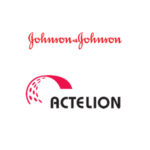 Although Actelion (VTX:ATLN)’s Opsumit drug candidate missed its primary endpoint in a phase III trial for patients suffering from a deadly heart-lung condition, analysts reportedly concluded that the result is unlikely to have an impact on merger talks with Johnson & Johnson (NYSE:JNJ).
Although Actelion (VTX:ATLN)’s Opsumit drug candidate missed its primary endpoint in a phase III trial for patients suffering from a deadly heart-lung condition, analysts reportedly concluded that the result is unlikely to have an impact on merger talks with Johnson & Johnson (NYSE:JNJ).
The Swiss drugmaker’s trial involved 226 patients with Eisenmenger Syndrome, which causes untreated congenital heart defects and pulmonary hypertension.
Shares in Actelion were up 2.4% after the company said Opsumit missed its main target – exercise capacity measured by a 6 minute walk test. Analysts estimated that the result weakens Opsumit’s revenue potential by as much as 200 million Swiss francs ($200 million) per year, according to Reuters.
But analysts also said that this loss is insignificant to U.S. healthcare giant J&J’s interest in Actelion. The 2 companies have been in exclusive talks for weeks, but they have not reached a deal.
Opsumit is a follow-on medicine to the company’s blockbuster pulmonary hypertension drug Tracleer, which has lost patent protection. Because Tracleer is already approved in Europe to treat Eisenmenger-related pulmonary hypertension, analysts at Jefferies called the adverse impact from the clinical trial’s results “likely minor.”
Opsumit was approved for pulomonary hypertension in 2013 and it was the company’s 2nd best-selling drug behind Tracleer in the 3rd quarter, bringing in sales of 218 million Swiss francs.
“The failure is a modest disappointment to the company’s efforts to differentiate Opsumit and protect it from price pressure,” Deutsche Bank analyst Richard Parkes said, Reuters reported.
Even though the drug missed its primary objective, Actelion categorized its results as “difficult to interpret”.
“Although the results point towards a benefit of treatment with macitentan (Opsumit), we do not see a significant treatment effect on the primary endpoint of exercise capacity as measured in the 6 minute walk test,” head of the Pulmonary Hypertension Center at the University of Bologna, Nazzareno Galie, said according to the news outlet.
The result may have been influenced by an “unexpected improvement” in the study’s placebo arm that has not been observed in previous pulmonary hypertension studies, Galie said, explaining that researchers must “fully analyze the data to understand what could have caused this phenomenon”.
Actelion CEO Jean-Paul Clozel has made efforts to maintain the company’s independence, like in 2011 when he rallied shareholders against a hedge fund’s attempt to sell the firm.
French drugmaker Sanofi (NYSE:SNY) reportedly stepped in to pursue negotiations with Actelion in mid-December, but Actelion and J&J entered exclusive negotiations at the end of the same month.
In response to the the 2 companies launching exclusive talks, Actelion said there “can be no assurance any transaction will result from these discussions.”

